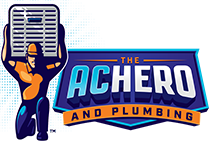When your heating or cooling system doesn’t work properly, or breaks down altogether, during the summer or winter, an HVAC emergency is imminent. Naturally, these HVAC emergencies often occur when you’re most reliant on air conditioning or heat. If a break down happens during weather extremes, dangerous conditions can result. In addition to temperature control, AC systems help manage humidity and indoor air quality; it’s therefore imperative to act quickly and appropriately in an HVAC emergency.
HVAC Emergency Speed Dial
You may not be skilled or equipped to determine the cause of HVAC failure, but you can act on the first signs of trouble. Is the AC not cooling like it normally does, are temperatures from one area to another uneven, or is there a lack of airflow? Are there unusual sounds, odors, or other symptoms that tell you the system isn’t working properly?
There are various reasons for these issues to occur. A dirty air filter can block airflow (the most common problem, as all HVAC systems use filters that eventually become clogged or worn). Once a filter is covered in dirt, it deprives the AC of air, causing it to work harder. This can lead to overheating, component damage, and eventually a break down.
If the condenser coils get dirty, heat transfer is disrupted so refrigerant does not distribute temperatures to provide the comfort you expect. Dust and dirt act as insulators and can cause an AC to overheat. It’s important to know how to clean your air conditioner to avoid emergencies related to dirt buildup. Another cause of an HVAC break down can be low refrigerant, which can overheat the system; a repair technician is needed to recharge the refrigerant and check for potentially dangerous leaks.
Recognizing Heating System Emergencies
A problem with your furnace is bad not only because you could be without warmth. You could be exposed to carbon monoxide or have a fire if the unit is defective. Heating system problems can result from debris in pipes, bad fuses, issues with system pressure, or a thermostat affected by age or a power surge. Heating system elements are too complex for most homeowners to manage themselves. Always call a professional in an emergency situation, as they have the training, tools, and expertise to diagnose and fix the problem quickly.
Always Find the Right HVAC Service Professional
Not every HVAC service technician has the same level of knowledge or experience. If they’re not familiar with your system, they might damage or break a part, cut the wrong wire, or skip an important step; not something you want to do in the face of an HVAC emergency. One simple mistake can result in more damage and even more expensive repairs when you have to hire someone else. One mistake can void your warranty or cause irreparable damage that may require complete system replacement.
Can HVAC Emergencies Be Prevented?
There are a few situations that lead to HVAC emergencies. For example, improper installation of a furnace or heat pump can lead to poor sealing or combustion issues that may result in a carbon monoxide leak. And if equipment is improperly installed, there’s also a chance it’s not properly sized, which can result in performance issues and accelerated wear and tear.
Preventative maintenance helps HVAC systems last longer and run more efficiently. Without routine cleaning, inspection, and tune-ups, a heating or cooling system is at a greater risk of breaking down and failing prematurely. HVAC emergencies are also more likely in aging systems. Air conditioners over 10 years and furnaces over 15 years old are at the greatest risk, so you might want to consider more frequent service or have the system replaced altogether.
So, with these considerations in mind, HVAC emergencies can be prevented.
Contact The AC Hero
Your first move during an HVAC emergency should be to call an experienced professional. At The AC Hero, our technicians are the most skilled in the industry and provide prompt, honest, and reliable service. We offer unmatched warranties as well. To learn more and/or request service, call us at 817-587-0634 today.
